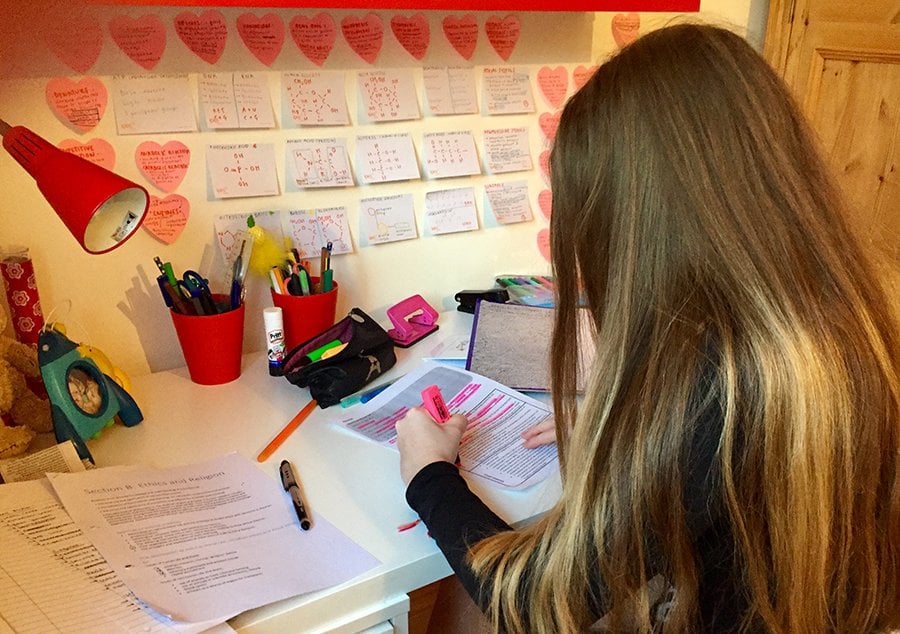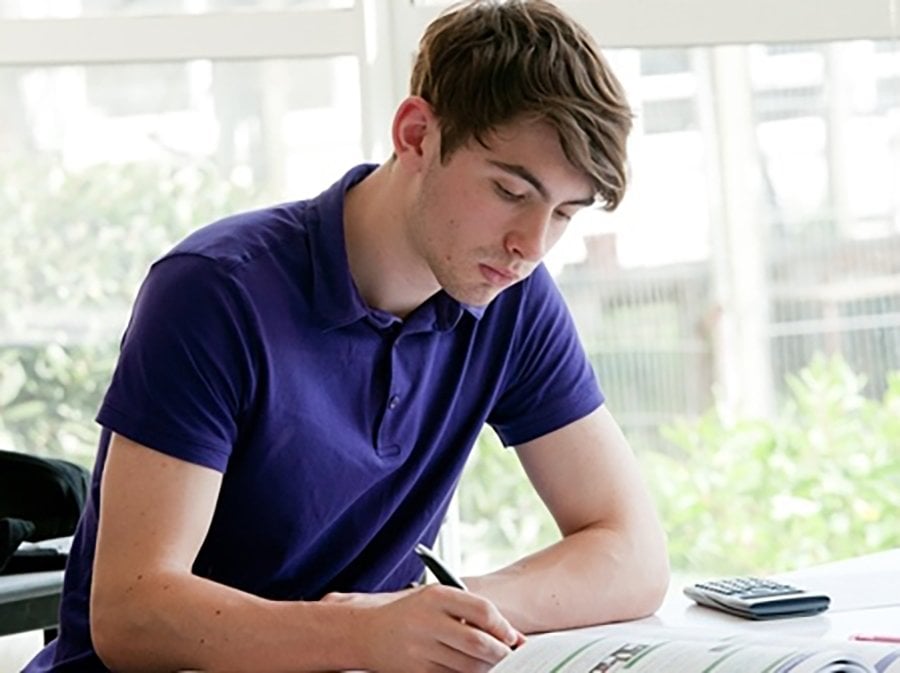How to get top exam grades and still have a life

If, like lots of students, you feel that life is a constant juggling act and is becoming increasingly stressful as mocks and exams loom closer, then read on.
With help from Justin Craig Education, we’ve pulled together some advice and downloadable tip sheets, to help you manage everything and get the best grades possible.
In this guide, you’ll find advice on:
- Getting organised and managing your time effectively
- Strategies to maximise your revision effectiveness
- Improving your exam technique
Getting organised and time management

Being well organised and managing your time effectively can make a massive difference to your life. January is the ideal time to sort yourself out and start afresh. Here’s how:
- Use a weekly planner to allocate study time and keep track of deadlines. Make it realistic by incorporating other activities/commitments and downtime for relaxation.
- Complete/organise notes as you go to make revision and homework easier.
- Allocate time during weekends/school holidays to revisit trickier areas and complete notes.
- Draw up a revision timetable before the school holidays start – break time/topics into chunks and factor in extra time for past papers.
Don’t forget, your study and the time you spend on it is up to you. If you find yourself losing direction, sit back and think of why you want to get good grades — remembering your goals can put everything into perspective.
Download the tip sheet on creating a revision timetable that works.
Strategies to maximise revision effectiveness

Focusing on activities that improve long-term retention of information and understanding will make your revision time more effective. We recommend:
- Spacing: Doing something little and often is far more effective than cramming. Rather than revising one subject for seven hours in one day, it’s better to do one hour of revision for seven days. This is because the time in between allows you to forget and re-learn the information, cementing it in your long-term memory.
- Interleaving: Doing a variety of subjects every day, rather than focusing on a single subject, is proven to be a more effective revision strategy. By helping make links and distinctions between different subjects, interleaving allows you to understand and practise the different thought processes required for different subjects and problems.
- Testing: Tests, quizzes and past papers are some of the most effective ways to improve memory. Students who regularly test themselves remember significantly more than those using more passive techniques such as re-reading notes.
- Keep it varied and active: Writing, re-reading and highlighting notes are some of the most commonly used revision techniques. However, they are relatively passive and students frequently switch off impacting recall and understanding.
Download the tip sheet on memory techniques to help you revise.
Improving your exam technique

Poor exam technique can leave even the brightest students with disappointing results. Whilst each subject differs slightly, here are our top tips:
- Think like an examiner: Doing past papers to perfect your exam technique. Also read the examiners’ report to identify and, hopefully avoid, the pitfalls of previous students.
- Ensure you understand the meaning of command words as this is key to making sure you answer the question properly.
- Use acronyms to help structure long-answer questions e.g. PETAL (Point; Evidence; Terminology; Analysis; Link) is a good one to try.
- Practice time management and question planning. Use past papers to practice and challenge yourself to work quickly and effectively. Rather than diving into the first question of the exam, allocate time to think and prepare.
- Use all the time provided. Even if you think you have done everything possible, don’t leave early. As well as checking for spelling or calculation errors, it’s good to do a quick sense check in case anything needs clarification/rewording.
Download the tip sheet for more exam technique advice.
To find out how Justin Craig Education can help maximise your exam potential, visit Justin Craig Education.
Justin Craig, a DofE Residential AAP, has been helping thousands of GCSE/A Level students since 1981. With expert tutors and a highly tailored approach, its small group courses are incredibly popular with students. As well as helping consolidate knowledge and build exam technique, feedback is that courses make a massive difference to confidence and motivation.
“I was really worried about my chemistry grade with exam season nearing – I needed an A to study my dream course at uni and was achieving Cs in my mock exams. My confidence was seriously lacking, and I doubted my ability to make enough progress in such a short space of time. What set my tutor apart from most teachers I’ve had was that he pushed us to believe in ourselves as much as he did academically – I genuinely think that made all the difference for me“ Jess, A Level Student


